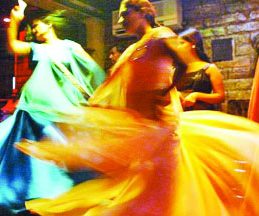A few decades ago, dance bars and cabarets were common across many metropolitan areas of India but they came to define Mumbai nightlife and were made even more glamorous by Bollywood. They then mutated to becoming a conduit into the underworld; dance bars functioned not just as places where one could have a good time but also as barely disguised brothels where illicit alcohol and drugs flowed. And with the police turning a blind eye to what was going on, thanks to payments in cash or kind, Mumbai nightlife remained the most vibrant across India. Many of the dancers believed that dancing at one of these bars would be their route to fame and fortune, if not as a Bollywood starlet then as a gangster’s moll.
With the emergence of politicians going after the temperance vote of women, these dance bars became an easy target back in 2005. Even after the Supreme Court itself ruled in 2013 that dance bars could be allowed, the state fought back both with new legislation and morality-crusading policemen. In fact, the Supreme Court came down heavily on moral policing, saying in its judgement that “a practice which may not be immoral by societal standards cannot be thrust upon the society as immoral by the State with its own notion of morality and thereby exercise social control.” For this, the bench headed by Justice AK Sikri must be commended. But the judgement also left a leeway for the State to decide what is obscene, and that opens another grey area which politicians are sure to take advantage of. It is not as if dance bars completely died out after the ban. In Mumbai, there are some ‘Orchestra Bars’ that, for lack of a nicer term, function as places where prostitution is rampant. Also while the Supreme Court has said that the Maharashtra Government should issue licences, the State can easily drag its feet on this front. A new sort of morality has emerged across India that perversely sees these dance bars as dens of vice while refusing to admit that prostitution and drug usage are shooting through the roof in the country. Dance bars have moved on, any visitor to Dubai can find several Bombay-style dance bars functioning with impunity in that country, although they are more controlled. Mumbai has not quite been the same as Bombay was in the 1970s; it is a different city in all aspects now. But Mumbaikars should have an equal right to have some fun.
Writer and Courtesy: The Pioneer








 OpinionExpress.In
OpinionExpress.In















Comments (0)